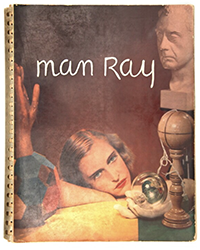Rare Book Monthly
Articles - August - 2007 Issue
Have We Glimpsed the Future of Book Publishing?
Among the other benefits noted by On Demand Books is the elimination of any need to stock or distribute these books. Overruns or shortages are no longer a problem. New books would be available anywhere in the world on the day they are released. There would be no returns. Remainders would cease to exist. "Out-of-print" will become an obsolete term future generations will not understand. This latter point is a concern to some writers whose contracts provide that rights to their works revert to the author once they go "out of print."
On Demand Books hints at an even more significant development when they note that the elimination of warehousing and shipping may lead to lower prices for the consumer. What they don't say is something that is already starting to happen with music. With on demand printing through the internet, there may be no need for publishers. Just as record companies now find they no longer have a stranglehold on, or the ability to force one-sided contracts upon musicians, publishers may find themselves in the same boat. They may be forced to reinvent themselves more as marketing companies than publishing ones, helping authors make consumers aware of their works, rather than printing and distributing them. Of course, this could give companies that control the databases used by these printing machines a stranglehold, unless there is true competition, or an open database. If this catches on, it will certainly turn the publishing world upside down.
What this does to collecting is another issue. What will constitute a first edition? Will every copy in effect be a limited edition, limited to one unique copy? How do you establish priority? Fortunately, it will be a long time before any of these books becomes antiquarian, so we will leave it to future generations of collectors to ponder these issues.
On Demand Books states that while traditional machines of this sort could cost $1 million, the Espresso "is priced to be affordable for retailers and libraries." They don't say what constitutes "affordable," and it probably does not have the same meaning to you, if you run a small book business, as it does to them. However, this may be something within the reach of larger bookstores and city libraries. If ultimately this throws people in the traditional publishing and printing businesses out of work, it will create a fantastic new job opportunity you may want to consider training for now. Think of that much simpler machine, the copier in your office, which constantly breaks down anyway. There is going to be a tremendous need for print-on-demand machine repairmen.





![<b>Sotheby’s:</b> Ernest Hemingway. <i>Three Stories And Ten Poems,</i> [Paris], (1923). First edition of Hemingway’s first published book. $75,000. Sotheby’s: Ernest Hemingway. Three Stories And Ten Poems, [Paris], (1923). First edition of Hemingway’s first published book. $75,000.](https://ae-files.s3.amazonaws.com/AdvertisementPhotos/acf970a0-a15d-4c79-aa24-5e8e414cb465.png)




